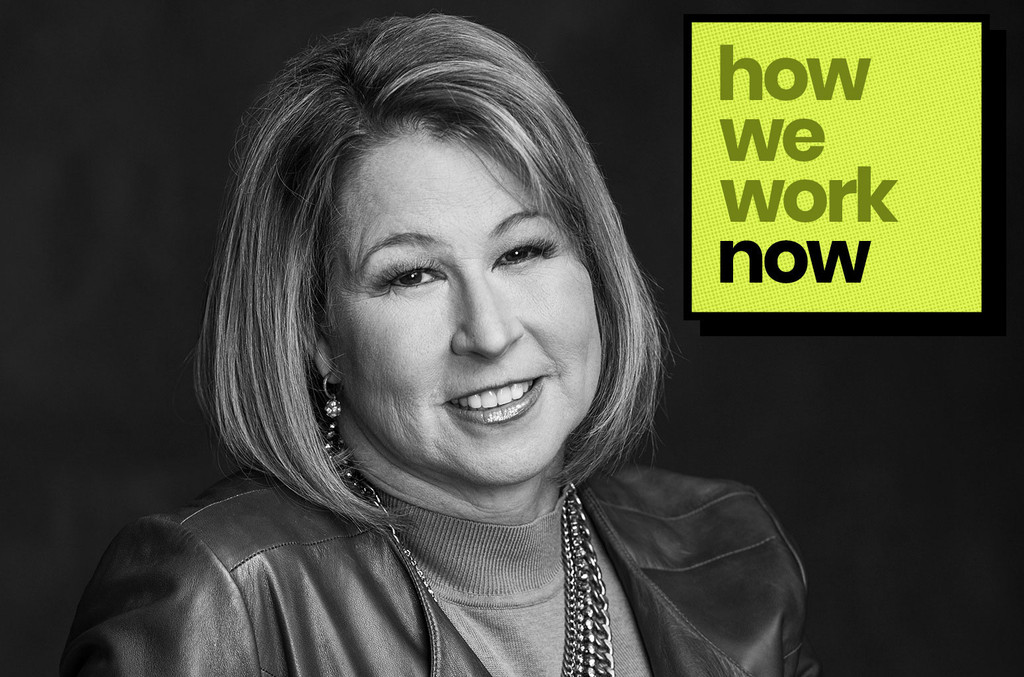In a series amid the coronavirus pandemic, Billboard is asking individuals from all sectors of the music business to share stories of how they work now, with much of the world quarantined at home and unable to take in-person meetings, attend conferences or even go into the office. Submissions for the series can be sent to [email protected]. Read the full series here.
This installment is with Sarah Trahern, CEO of the Country Music Association.
Sarah Trahern: If I look at the chapters of the last few months, March was about learning how to work together remotely and realizing the enormity of the decision we were making. There was never a thought that three months later we would still be in this situation.
The first couple weeks definitely had a learning curve. We transitioned from what we normally do as a trade organization to making sure we’re taking care of our members. We represent the totality of the music business, not just record labels and artists but also publishers and songwriters, PROs, streaming services and radio.
Early on we had to make a decision about CMA Fest, which was scheduled for June 4-7. As we were looking at the touring cancellations worldwide and thinking about the safety of our fans and artists — which is first and foremost — it was clear we couldn’t put on an event with 80,000 people per day. On March 20 we still hadn’t made the decision one way or another; at the time it didn’t look likely. We made that decision by the end of March. The decision came so fast: we had a committee meeting on March 25 and made the public announcement March 31.
Sadly, there were artists that were heartbroken because it was the first year they would have played the stadium. Fans that were coming from all over the world that couldn’t come. Also, there’s a downstream impact on our tourism business. Certainly, I know the mayor [of Nashville John Cooper] and Butch Spyridon [president and CEO of the Nashville Convention & Visitors Corporation] were hoping we would take our time in case something happened and things got better.
We had some fans writing to us saying, “I have tickets from Australia and I can’t come now because I can’t fly,” or, “I want to know whether or not Fest is happening so I can plan my life.” The positive thing is that roughly 70% of Fest ticketholders are holding onto tickets for next year and only 30% of ticketholders asked for refunds. So, I think that’s a positive statement about the strength of Fest and the fact that fans are going to be ready for music next year.
By April, it was clear the situation had changed and we would be separate longer than expected. The CMA had our board meeting during that time — it was scheduled for Phoenix, but held online — and more than anything, we realized it’s not going to be business as usual. So we turned our attention to making sure we’re out there as a trade organization for our members, while making sure we’re touching base with our foundation partners around the country. We looked at scenarios for our two or three TV properties in the fall to make sure we can do those in a safe way that continues to allow the CMA Awards to honor the best of the best this year.
COVID-19 changed how we look at serving the entire country music industry. We’re usually more focused on the celebrities. But I think, frankly, the COVID situation forced us to reach out and ask people how we can serve them as an organization. Should we be giving grants to people, other than what we do through music education? We realized that’s not our core expertise. So we made the decision to give $1 million dollars to MusiCares to help our music community. We asked how we can do a workshop on mental health and make sure we’re reaching out not just to people who are CMA members, but also people in our community who might not be.
We put on webinars every week to 10 days on everything from applying for COVID aid funding to communicating with employees while working remotely. We did a survey to try to put a number on the people affected by the pandemic in Nashville. People will say, “I don’t feel sorry for artists X or Y, they make a million dollars.” What they’re forgetting are all the people in the business food chain: from the 130 people that are on the road with the artist, to the venue, to the ticket takers, to the bus drivers. How do we refocus as a trade organization to make sure we’re putting faces on those people in our industry?
I can’t tell you how happy I am to see the artists doing what they’re doing. Alan Jackson’s drive-in concerts in Alabama helped raise money for food relief charities. Sturgill Simpson live-streamed a bluegrass show at the Ryman Auditorium. Brad Paisley did a live stream with his whole band from a studio here in town. Keith Urban did his drive-in show for essential workers. I’m so proud of our artists keeping connected with fans through their music.
Another of the things I’m so proud of is how the competing companies have worked well together — in Nashville and L.A. as well — whether it’s Live Nation and AEG, or William Morris and CAA. Managers get on a conference call and say, “Hey, I’m going to try to do this in the spring, what do you think about that?” Managers are killing it. So many of them are working so hard, even with no discernible revenue stream, because touring has stopped.
COVID has forced our global music community to get smaller. We have task forces in Germany, the U.K., Canada and Scandinavia to help keep country music strong there year round. As we continue to work on our strategy, we’re doing the meetings on a Zoom or a GoToMeeting call. We’re focused on what it looks like over the next year when artists aren’t able to travel internationally. What role can CMA play working with the artists and the labels to make sure the tastemakers in Germany and the U.K. don’t forget about the music?
We likely won’t return to the office until, at the earliest, after Labor Day, just depending on where we are. We’re not at the stage where we can do that, though. I went in for a couple days when we had the weather thing come through. Yesterday I went and had a meeting with a conference head, sitting at opposite ends of an eight-foot table. We each brought our lunch and spent two hours going through some strategic planning around the CMA Awards show. It was great to be able to do it face-to-face, not face-to-camera, and to look each other in the eye. Our TV producer was in, so we talked from a distance, too.
In some ways my biggest challenge right now is making sure our people are taking a break. Are you taking a vacation even if you’re going to be home and off the clock? One of the things we’ve had to coach our folks through is, just because you can be on your computer at home doesn’t mean you should. Can you walk away from it at 6:30 or 7:00 at night knowing that your kitchen table might be your office? You need to give yourself some mental health breaks during this period, too. I think there will be more opportunities for people to work from home. There are certainly some learnings I’m eager to see if we can apply in the post-COVID world.
I think this experience has grounded people to what’s important. For me, it’s family. Last week I was able to work at my dad’s house in Knoxville and help him with moving. He’s 83 years old and not in any shape to be lugging boxes up stairs at night. He gave me grief: “You told me you were busy but I had no idea you sat down in a chair and didn’t get up for eight hours.”
I’ll always be grateful that I had time to help him, schedule painters, do the things I can do as his daughter that I wouldn’t have been able to do had I not been working from home. But, on the other hand, while working from home my husband learned again that I can cook! When I go back again, I don’t know how much longer I can cook.




